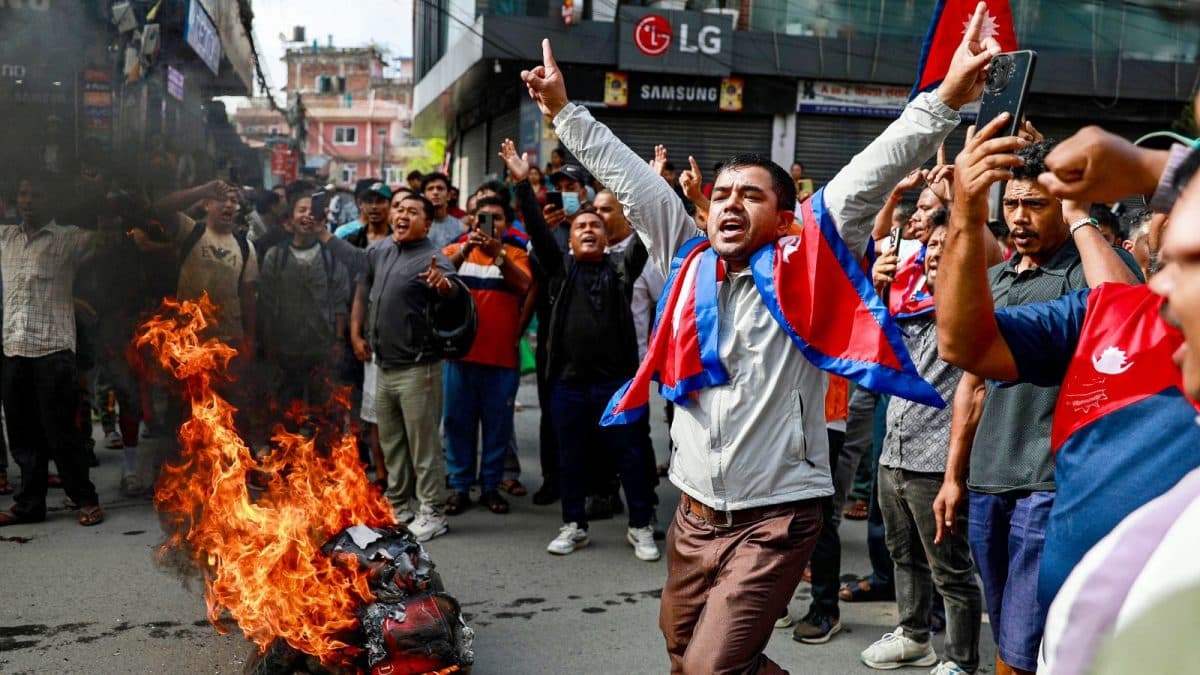Who throws the wrecking ball is anybody’s guess. But the fall of the skittles in the region is for all to see

India’s neighbourhood resembles a bowling alley. Regimes falling one after the other like pins as an invisible force rolls its wrecking ball through nations, overturning governments, and installing a new set of pins of its choice till those fall again.
Who throws that wrecking ball is anybody’s guess. But the fall of the skittles in the region is for all to see.
In spite of winning the 2020 elections, Myanmar’s Aung San Suu Kyi was arrested in a February 2021 coup by the Tatmadaw, or military. She is serving a 27-year sentence.
Then the Taliban stormed back to power in August 2021, overthrowing the elected Afghanistan government, sending back US and NATO troops in a hurried, disgraceful withdrawal.
Then Pakistan’s Imran Khan government was toppled, and the leader jailed. Coup attempts by his supporters failed.
In 2022, massive public protests in Sri Lanka against President Gotabaya Rajapaksa and his family led to a mob storming the presidential palace. Five days later, Rajapaksa fled the country and sent his resignation from Singapore. It was hailed as a victory for the “aragalaya", or people’s struggle.
And now, Nepal PM KP Sharma Oli is gone. Believed to be China’s man, Oli fled in a helicopter after protests by young Nepalis reached his doorstep. Again, it is hard to believe that an agitation of this scale, intensity, and purpose is entirely spontaneous, without any external help.
Who gains from this series of regime changes is not the subject of this piece. Since all this has been happening in India’s neighbourhood, it is prescient to ask if India is immune to regime change ops.
Didn’t we witness such attempts to fuel mass protests and provoke some reckless government action with the anti-CAA agitation, anti-farm law stir, and the Nupur Sharma episode?
The Narendra Modi government handled it calmly, maturely, and with the kind of restraint and deftness which comes from foreseeing trouble from a long distance.
But there are still lessons to be learnt from Nepal or Bangladesh, for instance.
First, if regime-change agents bring a five-lakh-strong mob on the streets, the ruling dispensation must be able to counter-mobilise 10 lakh people to take them on. If Oli, instead of manipulating weak coalitions, spent energy and resources in building a strong party and popular government, his own people would have confronted the protesters. If you have genuine popularity, regime change attempts are destined to fail.
Second, to retain that popularity, make sure that the government or the party in power does not lose touch with the ground. Hasina did, Rajapaksa did. They sidelined genuine leaders and party workers. In their hubris, they started running the government with a small coterie of stooges, totally cut off from the ground.
Such lackeys are parasites who shun the grassroots and derive power by sucking up to their bosses and telling them only what they wish to hear.
Third, do not dilute the street power of your cadre and rely excessively on the police, army, and the rest of the government machinery. One’s own people power is the most effective way to defeat sponsored mobs.
When it comes to dealing with civilians, uniformed forces either make the mistake of committing excesses and triggering sympathy for the opponent, or when the water rises above their nose, they refuse to protect the government and meekly surrender to those they feel could be their next bosses.
India’s democracy is too strong, its forces too seasoned, and its silent majority too wise to upstage governments through sponsored coups instead of the ballot box. But the US, China, or the Islamist collectives are not enemies one should underestimate. Which is why this is a time to watch and learn and not lean to any side in haste.
top videos
Abhijit Majumder is a senior journalist. Views expressed in the above piece are personal and solely those of the author. They do not necessarily reflect News18’s views.
First Published:
September 10, 2025, 20:22 IST
Disclaimer: Comments reflect users’ views, not News18’s. Please keep discussions respectful and constructive. Abusive, defamatory, or illegal comments will be removed. News18 may disable any comment at its discretion. By posting, you agree to ourTerms of Use and Privacy Policy.
Loading comments...

